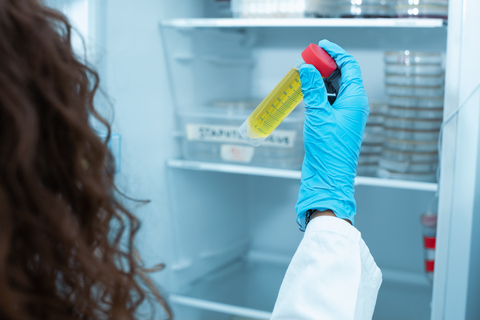预约演示
更新于:2025-05-16
Art-175
更新于:2025-05-16
概要
基本信息
药物类型 酶 |
别名 Artilysin、ART-014、ART-085 + [3] |
靶点- |
作用方式- |
作用机制- |
治疗领域 |
在研适应症 |
非在研适应症- |
原研机构 |
非在研机构- |
权益机构- |
最高研发阶段临床前 |
首次获批日期- |
最高研发阶段(中国)- |
特殊审评- |
关联
100 项与 Art-175 相关的临床结果
登录后查看更多信息
100 项与 Art-175 相关的转化医学
登录后查看更多信息
100 项与 Art-175 相关的专利(医药)
登录后查看更多信息
11
项与 Art-175 相关的文献(医药)2024-07-01·INTERNATIONAL JOURNAL OF BIOLOGICAL MACROMOLECULES
Create artilysins from a recombinant library to serve as bactericidal and antibiofilm agents targeting Pseudomonas aeruginosa
Article
作者: Yao, Xin ; Wang, Qiantao ; Zou, Peixuan ; Yu, Rong ; Liu, Shuang ; Zheng, Yongxiang ; Zeng, Ting ; Zhang, Chun ; Chen, Qiexin ; Wei, Long
Pseudomonas aeruginosa is a critical pathogen and novel treatments are urgently needed. The out membrane of P. aeruginosa facilitates biofilm formation and antibiotic resistance, and hinders the exogenous application against Gram-negative bacteria of endolysins. Engineered endolysins are investigated for enhancing antimicrobial activity, exemplified by artilysins. Nevertheless, existing research predominantly relies on laborious and time-consuming approaches of individually artilysin identification. This study proposes a novel strategy for expedited artilysin discovery using a recombinant artilysin library comprising proteins derived from 38 antimicrobial peptides and 8 endolysins. In this library, 19 colonies exhibited growth inhibition against P. aeruginosa exceeding 50 %, and three colonies were designated as dutarlysin-1, dutarlysin-2 and dutarlysin-3. Remarkably, dutarlysin-1, dutarlysin-2 and dutarlysin-3 demonstrated rapid and enhanced antibacterial activity, even minimum inhibitory concentration of them killed approximately 4.93 lg units, 6.75 lg units and 5.36 lg units P. aeruginosa, respectively. Dutarlysins were highly refractory to P. aeruginosa resistance development. Furthermore, 2 μmol/L dutarlysin-1 and dutarlysin-3 effectively eradicated over 76 % of the mature biofilm. These dutarlysins exhibited potential broad-spectrum activity against hospital susceptible Gram-negative bacteria. These results supported the effectiveness of this artilysins discovery strategy and suggested dutarlysin-1 and dutarlysin-3 could be promising antimicrobial agents for combating P. aeruginosa.
2023-12-01·Biotechnology advances
Design strategies for positively charged endolysins: Insights into Artilysin development
Review
作者: Ferrer-Miralles, Neus ; Garcia-Fruitós, Elena ; Arís, Anna ; Carratalá, Jose Vicente
Endolysins are bacteriophage-encoded enzymes that can specifically degrade the peptidoglycan layer of bacterial cell wall, making them an attractive tool for the development of novel antibacterial agents. The use of genetic engineering techniques for the production and modification of endolysins offers the opportunity to customize their properties and activity against specific bacterial targets, paving the way for the development of personalized therapies for bacterial infections. Gram-negative bacteria possess an outer membrane that can hinder the action of recombinantly produced endolysins. However, certain endolysins are capable of crossing the outer membrane by virtue of segments that share properties resembling those of cationic peptides. These regions increase the affinity of the endolysin towards the bacterial surface and assist in the permeabilization of the membrane. In order to improve the bactericidal effectiveness of endolysins, approaches have been implemented to increase their net charge, including the development of Artilysins containing positively charged amino acids at one end. At present, there are no specific guidelines outlining the steps for implementing these modifications. There is an ongoing debate surrounding the optimal location of positive charge, the need for a linker region, and the specific amino acid composition of peptides for modifying endolysins. The aim of this study is to provide clarity on these topics by analyzing and comparing the most effective modifications found in previous literature.
2023-05-10·International journal of molecular sciences
Characterization and Engineering Studies of a New Endolysin from the Propionibacterium acnes Bacteriophage PAC1 for the Development of a Broad-Spectrum Artilysin with Altered Specificity.
Article
作者: Labrou, Nikolaos E ; Varotsou, Christina ; Premetis, Georgios E
The emergence of multidrug-resistant (MDR) bacteria has risen rapidly, leading to a great threat to global public health. A promising solution to this problem is the exploitation of phage endolysins. In the present study, a putative N-acetylmuramoyl-L-alanine type-2 amidase (NALAA-2, EC 3.5.1.28) from Propionibacterium bacteriophage PAC1 was characterized. The enzyme (PaAmi1) was cloned into a T7 expression vector and expressed in E. coli BL21 cells. Kinetics analysis using turbidity reduction assays allowed the determination of the optimal conditions for lytic activity against a range of Gram-positive and negative human pathogens. The peptidoglycan degradation activity of PaAmi1 was confirmed using isolated peptidoglycan from P. acnes. The antibacterial activity of PaAmi1 was investigated using live P. acnes cells growing on agar plates. Two engineered variants of PaAmi1 were designed by fusion to its N-terminus two short antimicrobial peptides (AMPs). One AMP was selected by searching the genomes of Propionibacterium bacteriophages using bioinformatics tools, whereas the other AMP sequence was selected from the antimicrobial peptide databases. Both engineered variants exhibited improved lytic activity towards P. acnes and the enterococci species Enterococcus faecalis and Enterococcus faecium. The results of the present study suggest that PaAmi1 is a new antimicrobial agent and provide proof of concept that bacteriophage genomes are a rich source of AMP sequences that can be further exploited for designing novel or improved endolysins.
10
项与 Art-175 相关的新闻(医药)2023-09-07
TRIESENBERG, Liechtenstein--(BUSINESS WIRE)-- Lysando, leading biotech in antimicrobial proteins, proudly announces the addition of Mr. Jorge Cortell to its esteemed Advisory Board marking a significant milestone in the company's growth. As a serial entrepreneur and renowned visionary in healthcare technology he brings a wealth of expertise to Lysando's strategic direction.
This press release features multimedia. View the full release here:
Jorge Cortell - Advisory Board Member Lysando AG
As Senior Advisor for Healthcare and Life Sciences at Harvard University Innovation Laboratories, and a technology advisor to NLC, Europe's largest HealthTech Venture Builder, Jorge Cortell's background positions him as a thought leader in the global industry. His profound understanding of both tech and business landscapes makes him an asset in guiding Lysando towards new heights of success.
“At Lysando, our mission is helping patients rather than simply selling treatments. Antibiotic resistance is estimated to claim over a million lives annually worldwide, posing an existential threat to society. Moreover, contamination of our environment by pharmaceuticals, particularly antibiotics, poses an alarming additional danger,” says Count Markus Matuschka de Greiffenclau, Chairman of the Board of Directors of Lysando AG. “With our Artilysin® technology, we are committed to combating resistance, promoting green pharma practices, and envisioning a future without fear of bacterial infections. As time is of the essence, we are delighted to have Jorge on board; a visionary who embodies innovation, comprehends AI, and supports Lysando's endeavour to save millions from pathogenic bacteria.”
“I am delighted to announce my appointment to the Advisory Board of this pioneer in the field of innovative antimicrobial solutions,” says Jorge Cortell, newly appointed Advisory Board member of Lysando AG. “Joining Lysando represents an exciting opportunity to contribute my expertise in cutting-edge technologies and their potential to revolutionize healthcare. I believe in Lysando's mission to address the global challenge of antimicrobial resistance and to improve patient outcomes through transformative therapeutic solutions. Together, we will strive to shape a healthier future by harnessing the power of science and innovation.”
Jorge Cortell's involvement on the Advisory Board promises to drive the company's mission, ultimately ushering in a future of improved quality of life for all.
About Lysando AG
Lysando is market leader for antimicrobial proteins, so‐called Artilysin® molecules. They can effectively eliminate problem‐causing bacteria without associated high risk of resistance formation and microbial disbalances. Artilysin® constitutes an innovative, proprietary, and environmentally friendly technology with a wide range of applications.
View source version on businesswire.com:
Contacts
Verena Schossmann
+41(0)79 211 83 42
Verena.Schossmann@lysando.com
Source: Lysando
Smart Multimedia Gallery
Photo
Jorge Cortell - Advisory Board Member Lysando AG
Logo
View this news release and multimedia online at:
高管变更
2023-07-06
Heading up AiCuris’ refocused pipeline will be Pritelivir, which is in phase 3 development to treat acyclovir-resistant herpes simplex virus infections.
AiCuris is doubling down on its infectious disease pipeline at the expense of its COVID-19 and foot infection programs.
“Sharpening its strategic focus” on a portfolio of therapies for infectious diseases in immunocompromised patients means the biotech will be able to accelerate development plans and prepare for market launch, the Wuppertal, Germany-based company said in a July 6 release.
The knock-on effect is that AiCuris “will discontinue research activities outside of this strategic scope.” While the company didn’t go into details of what activities will be scrapped, the COVID-19 therapy AIC649 was notable for its absence from today’s release.
The company received 5.9 million EUR ($6.4 million) in funding from a regional German government last year to advance the immune modulator as a potential way to slow progression of COVID-19. The therapy had been undergoing a clinical study in Germany and Africa.
Another program that wasn’t name-checked today was AiCuris’ collaboration with fellow German biotech Lysando. The two companies were working on Artilysin, a potential treatment for infected, chronic wounds such as diabetic foot infections.
“Unfortunately, anti-infective treatment options for this growing patient population are often limited and few companies are focusing on developing appropriate therapeutic candidates,” AiCuris CEO Larry Edwards said in the release. “This strategic change will allow us to be more efficient and effective from an operations perspective and ensure we are able to bring novel treatment options to patients in need.”
Heading up AiCuris’ refocused pipeline will be Pritelivir, which is in phase 3 development to treat acyclovir-resistant herpes simplex virus infections in immunocompromised patients. Topline data is due at the end of 2024.
Then there’s AIC468, an anti-sense RNA therapy due to enter the clinic early next year to prevent BK virus infection in kidney transplanted patients. The biotech is also working on preclinical programs designed to combat human adenovirus infections, with a key goal being to develop the first topical treatment specifically designed for ADV infections of the eye.

临床3期
2023-05-08
TRIESENBERG, Liechtenstein--(
BUSINESS WIRE
)--Amicogen, a leading biotech company specializing in industrial enzyme production and drug development, has partnered with Lysando, an innovative biotech company with expertise in the development of antimicrobial Artilysin
®
, to address the rising issue of mastitis in dairy cows caused by multi-resistant bacteria.
According to recent research, the overuse of antibiotics in animal husbandry has been driving a fast increase in multidrug-resistant pathogens. Approximately 70% of all antibiotics produced globally are used in agriculture, often as preventative measures, which has accelerated the spread of resistances.
Mastitis – a bacterial infection of the udder caused by various, often multi-resistant strains of bacteria – is rapidly spreading, particularly in Asia. This leads to animal suffering and significant wastage of milk production, causing the global dairy industry about $20-30 billion in annual revenue loss.
The partnership between Amicogen and Lysando aims to develop an innovative solution to this pressing issue. By leveraging their combined expertise, the companies set out to generate a treatment that is both effective and sustainable, reducing the economic impact of mastitis on farmers while improving animal welfare.
“We are excited to partner with Lysando to develop a novel and innovative solution against mastitis in dairy cows,” said Dr. Park, CEO of Amicogen. “This collaboration highlights the growing importance of joining forces in biotech and the potential for innovation to address critical challenges – also in agriculture.”
“Our Artilysin
®
technology has shown great promise in addressing bacterial infections and we believe that this partnership will make a real difference in the fight against mastitis”, added Dr. Kerstin Emmrich, Director R&D, Lysando AG.
The joint effort between Amicogen and Lysando represents a significant step towards combatting the rising problem of antibiotic resistance and improving animal health. The companies envisage to continue their research to deliver innovative solutions for critical challenges.
About Amicogen
Amicogen Inc (092040.KQ) is a CDMO and biotechnology company based in Jinju, South Korea. Amicogen is a leader in the development and production of specialty enzymes and proteins for the biopharmaceutical, food, cosmetics and other industries.
About Lysando
Lysando AG is market leader for antimicrobial proteins, so‐called Artilysin
®
molecules. They can effectively eliminate problem‐causing bacteria without associated high risk of resistance formation and microbial disbalances. Artilysin
®
constitutes an innovative, proprietary, and environmentally friendly technology with a wide range of applications.

100 项与 Art-175 相关的药物交易
登录后查看更多信息
研发状态
10 条进展最快的记录, 后查看更多信息
登录
| 适应症 | 最高研发状态 | 国家/地区 | 公司 | 日期 |
|---|---|---|---|---|
| 革兰氏阴性菌感染 | 临床前 | 德国 | - | |
| 革兰氏阳性细菌感染 | 临床前 | 比利时 | - | |
| 革兰氏阳性细菌感染 | 临床前 | 德国 | - | |
| 革兰氏阳性细菌感染 | 临床前 | 德国 | - | |
| 碳青霉烯类耐药鲍曼不动杆菌感染 | 临床前 | 比利时 | - | |
| 碳青霉烯类耐药鲍曼不动杆菌感染 | 临床前 | 德国 | - | |
| 对多种药物耐药的传染病 | 临床前 | 比利时 | - | |
| 对多种药物耐药的传染病 | 临床前 | 德国 | - | |
| 对多种药物耐药的传染病 | 临床前 | 德国 | - | |
| 假单胞菌感染 | 临床前 | 比利时 | - |
登录后查看更多信息
临床结果
临床结果
适应症
分期
评价
查看全部结果
| 研究 | 分期 | 人群特征 | 评价人数 | 分组 | 结果 | 评价 | 发布日期 |
|---|
No Data | |||||||
登录后查看更多信息
转化医学
使用我们的转化医学数据加速您的研究。
登录
或

药物交易
使用我们的药物交易数据加速您的研究。
登录
或

核心专利
使用我们的核心专利数据促进您的研究。
登录
或

临床分析
紧跟全球注册中心的最新临床试验。
登录
或

批准
利用最新的监管批准信息加速您的研究。
登录
或

生物类似药
生物类似药在不同国家/地区的竞争态势。请注意临床1/2期并入临床2期,临床2/3期并入临床3期
登录
或

特殊审评
只需点击几下即可了解关键药物信息。
登录
或

生物医药百科问答
全新生物医药AI Agent 覆盖科研全链路,让突破性发现快人一步
立即开始免费试用!
智慧芽新药情报库是智慧芽专为生命科学人士构建的基于AI的创新药情报平台,助您全方位提升您的研发与决策效率。
立即开始数据试用!
智慧芽新药库数据也通过智慧芽数据服务平台,以API或者数据包形式对外开放,助您更加充分利用智慧芽新药情报信息。
生物序列数据库
生物药研发创新
免费使用
化学结构数据库
小分子化药研发创新
免费使用
